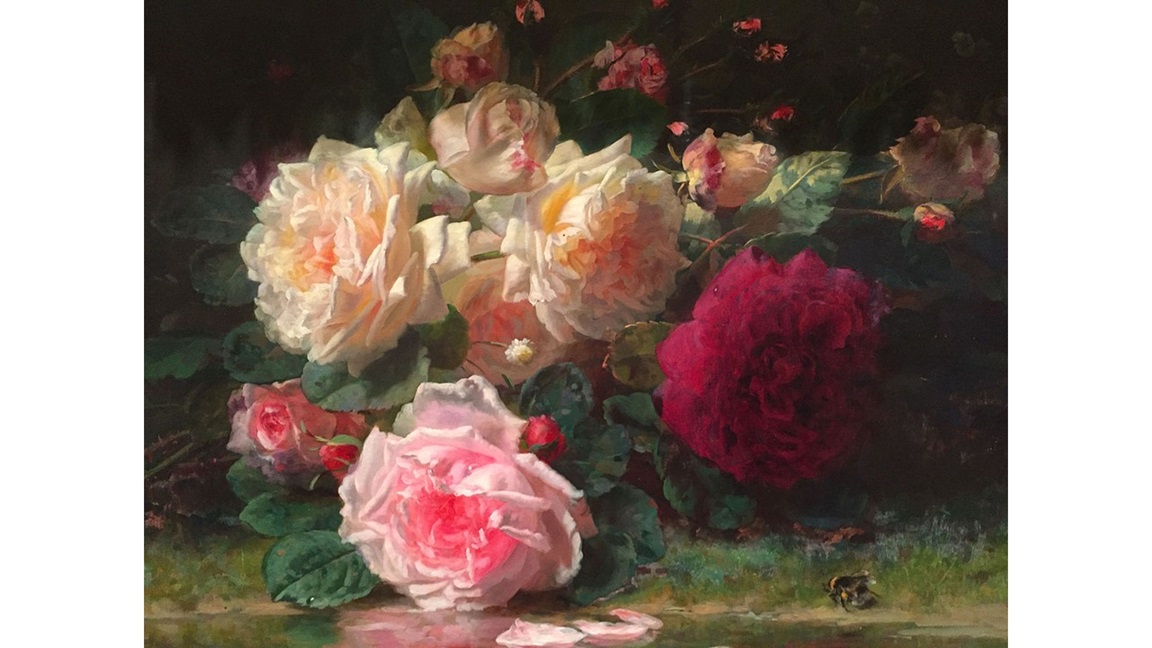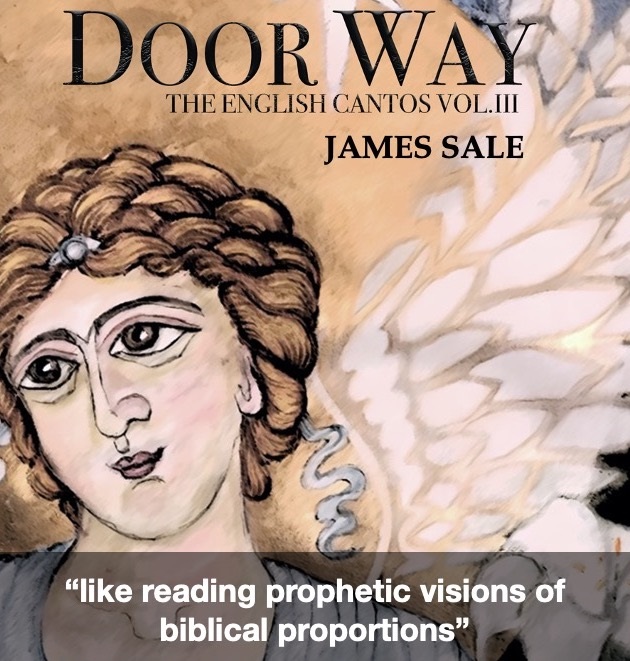I. Return to Rome
Turn, turn, sing Seeger and the Shakers, turn
Till one day all comes right—but is it so?
Here down Domitian’s track I run, I burn:
Here dreamed of glory, all those years ago.
Did glory come? I went as envoy south
To a state so poor it could not print its name
Where camels were the treasury’s sole stock
And boys threw rocks at strangers in the street.
Glory’s no good in a land of dusty drouth
Where bribes and lies are leaders’ crafty game
To play with foreign aid ships when they dock;
Who steal for secret stores the tons of wheat.
I’ll climb the Palatine to see my mountains
Still green beyond dry memories and cracked fountains.
II. Headquarters, UN World Food Program
Our fathers sailed in small and leaking boats;
The migrants now march north through deadly sands.
Our mothers in the ghettos sewed cheap coats
And others now replace them from poor lands
Where justice is a website that none sees
And infants’ eyes are swarming with black flies
And charcoal’s short because there’s no more trees
So water can’t be boiled and this child dies
Of cholera, who might have grown up great
Else made to be the soldier who at ten
Has learned to cut off hands and how to hate
His world of sad failed states and famines, when
Thin men in sallow camps eat UN rice
And spend their hours at cards and picking lice.
III. Santa Maria Maggiore
O Lord, Your ways seem hard to understand.
I do not doubt Your majesty when I,
A thing of some few atoms, view the band
Of a billion stars in a clean December sky.
I love the liturgy and pomp and chant
At the Esquiline basilica, on Sunday,
But I can only cry at the cruel and cant
Of some church men when I think back, come Monday,
How the archpriest here presided for so long
In a diocese where pastors buggered boys.
Why would You make that den of sheltered wrong
Your instrument? The very thought destroys
All dreams of good. Old martyrs would decry those Popes
Whose preying priests robbed young boys’ pride and hopes.
IV. Via Urbana
The small bells of St. Lawrence sound for seven
In the street where once patricians lived in state
And Peter came to Pudens’ to preach heaven
To poor folk in a capital of hate.
I see no walkers, neighbors still asleep,
Just swallows darting happy in high air
With the blackbird singing bold to tell me, “Keep
A true calm heart when times turn foul from fair.”
I buy a cappuccino and go sit
By Della Porta’s fountain, read the news,
And watch how slow the high old walls get lit
By Father Sun, in a world we may yet lose.
I think of how this old Republic fell;
Our own across the sea is far from well.
V. Cimitero Acattolico
St. Paul walked out this road en route to die,
Passing in scorn the tribune’s pompous tomb.
Now friends—and poets, sculptors, princes—lie
In peace beneath these pines, their final room
In Rome, brief stop, some thought, on their Grand Tour:
For fevers like recessions may surprise
Both ministers and maidens, rich and poor,
And any grave fits every rank and size.
Great Goethe thought they’d bury his bones here
But ended up in Weimar, never saw
The blackshirt bullies, gulags, gore, and fear,
The years that truth brought death and lies were law.
O Keats and Shelley, sing us some brave new song
From your green graves in our world that’s gone so wrong.
Peter Bridges holds degrees from Dartmouth and Columbia and retired from the Foreign Service as ambassador to Somalia. Kent State University Press published his diplomatc memoir, Safirka: An American Envoy, and the biographies of John Moncure Daniel and Donn Piatt. He has self-published a volume of a hundred Sonnets from the Elk Mountains and a memoir entitled Woods Waters Peaks: A Diplomat Outdoors. His poetry and prose have appeared in Eclectica, Copperfield Review, Michigan Quarterly Review, Virginia Quarterly Review, and elsewhere.

















Peter,
You paint some grim pictures, which I must assume are informed by your career in the Foreign Service. In several places I had to elide consecutive unstressed syllables to save the iambic rhythm, but, in my opinion this falls far short of sin and probably shouldn’t even be considered a peccadillo on your part. All five are deadly serious and, in a way, a welcome break from the usual fare of lighthearted promises of up-welling hope.
Dear C.B.,
I appreciate your efforts to save iambic rhythm in these sonnets, although I am a little sorry that you felt the need to do so.
I have committed far greater sins against iambic purity over the last six decades, but looking at the sonnets of far greater poets, e.g. Gerard Manley Hopkins, I go to bed unworried that poetic sins will drag me to damnation.
Best wishes.
Peter
Ambassador Bridges has certainly not hesitated to look at the seamy side of the world, and the persistence of rank corruption, despite all the glassy-eyed utopian efforts of American liberal internationalists to turn it into a nice, safe, bland, diverse consumerist playground.
But please — let’s not long for Keats and Shelley. Those dreamers were a part of the problem.
I could comment, but better I stick to my imperfect iambs.
Ambassador Bridges,
Thank you for opening your heart and mind to us in these sonnets.
T.S. Eliot wrote, “. . . humankind Cannot bear very much reality.” (Burnt Norton). The artfully and graphically expressed content of your poems reflect the truth contained in Eliot’s words. Your emotionally charged descriptive references to sexual abuse, war, climate change, poverty, hunger, injustice, corruption, dislocation, disease, and death serve as a litany of human suffering that is, indeed, hard to bear.
One can either choose to 1. Ignore the darkness of human suffering, 2. Curse and bemoan it, or 3. Light a candle in an attempt to dimish, dispel, and defeat it.
The same Jesus who declared that the world would never eliminate poverty then proceeded to command his followers to feed the hungry and clothe the naked, anyway. While it is true that we may never “turn, turn” the world into “the place it ought to be” or that our “turning, turning” may never make it “come ’round right,” it is still “better to light a candle than to curse the darkness.”
While I do not have any “lighthearted promises of up-welling hope” to offer, I refuse to allow hope to succumb to despair. I also refuse to allow the impossibility of saving everyone to excuse me from joining with others in doing everything possible to save some. For as you put it so eloquently, “this child dies Of cholera, who might have grown up great.”
James,
What Jesus meant is that children will always need the charity of their parents, and that many seniors along with many of those whom are disabled from injury or disease need to receive charity from society, too.
Sometimes neighbours are also in need of charity, if their country did suffer an earthquake or tornado, for example. Furthermore, domesticated animals that cannot survive in the wild are also reliant upon the charity of humans.
Jesus did not mean that the world is evil and thus that we should fight against the evil world, though it is hopeless to do so. Jesus was a practicing Jew; therefore he believed in Olam Ha-Ba as a result of Tikkun olam.
From Lannie.
Lannie,
I beg to differ.
What Jesus meant when he said, “The poor you will always have with you,” (NIV Matthew 26:11 & Mark 14:7) is perfectly plain and clear. What he meant was, “The poor you will always have with you.”
The Greek word translated “poor” is πτωχός (which literally means, “to crouch”). It is best translated “beggar” but is more commonly translated as “poor.” It is also sometimes translated as “lowly” and can also refer to those without wealth, property, education, or social status.
In both Matthew and Mark (but more explicitly in Matthew), Jesus is directly paraphrasing and citing Deuteronomy 15:11, which reads, “There will always be poor people in the land.” (NIV) Here the Hebrew word is אֶבְיוֹן which is universally translated as “poor.”
I have no idea where you came up with your imaginative “meaning” for this word but there is no need for linguistic gymnastics. The meaning is beyond question or doubt.
What Jesus then commands his followers to do (most plainly in Matthew), is also clear, not to mention that it is the identical commandment is given to Israel in Deuteronomy 15:11.
Also, nowhere in my comment did I declare or imply that Jesus “meant that the world was evil.” (I did not, in fact ever use the word at all). Jesus did, of course, believe that there was evil in the world, and uses the term often in the Gospels.
As for, “Jesus was a practicing Jew; therefore he believed in Olam Ha-Ba as a result of Tikkun olam.” With this, at least, we are in complete agreement.
I think it’s okay to present the negative side of life sometimes. Sometimes that is the only way we can process what we have experienced. And if we don’t realize that there are problems, we won’t look for solutions. However, I do not believe that problems are ultimate reality.
“I think of how this old Republic fell;
Our own across the sea is far from well.”
I like how this couplet lets the reader interpret the meaning in his or her own way. If we are honest, we will perceive problems in the world and in our respective countries. Your couplet allows the reader to fill in the details in his own way.
These poems remind me of the six sonnets on Dante by Longfellow in their tone, if not their artistry or themes. “Via Urbana” is a remarkable poem. Like Mr. Anderson, I think some brush strokes could could touch it up nicely. Like Mr. Salemi, I too find Keats and Shelley part of a larger problem in English literature; and yet, of course, they have their places. Mr. Tweedie commented on the eloquence of “this child dies Of cholera, who might have grown up great”,
which reminds me of Gray’s “Elegy”: “Some mute inglorious Milton here may rest”. Finally, Mr. Alan notes the excellent couplet, “I think of how this old Republic fell; Our own across the sea is far from well.” which I may well use in the future as a quote on a poem.
Skilful work. I especially like numbers 2,3 and 5; they really are an effective combination of traditional verse form with bang-up-to-date topics and concerns.
What a breath of fresh air these poems are, Peter. Not for you the false optimism displayed in many poems, unfelt by the author and just an excuse for a poem. Your ‘set of five’ is a welcome dose of hard-core reality about how things really are, and how they’ve always been; including the GPR (global paedophile ring) otherwise known as the church.
What’s more, all five are skilfully written (which is exemplified in the 2nd piece containing only two sentences), with immaculate rhymes (35 pairs of full-rhymes in all.. no mean feat), and clear, fluid diction throughout. And all written by one who was once in a position to witness the subject-matters with your own eyes and ears.
I also like your style in declining to reply to the empty accusations made above regarding Keats and Shelley. Your silence spoke volumes . . .
Thanks very much, Monty. At 87 I try to tell things straight and in a way that people will read.